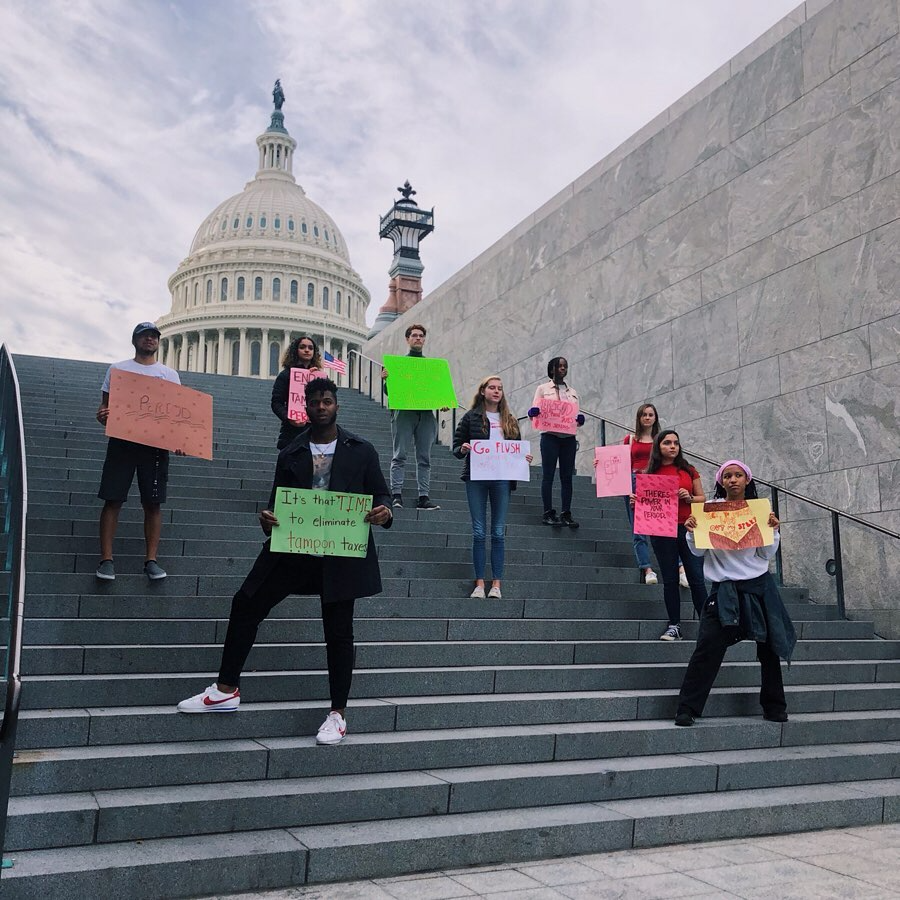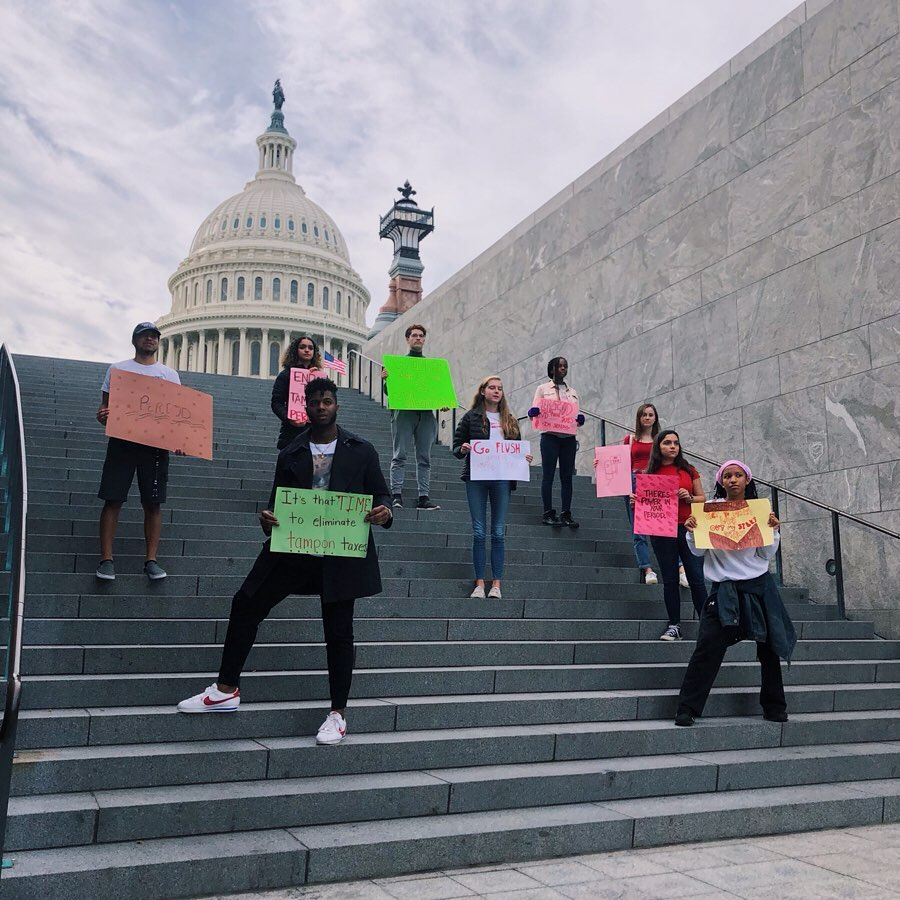Georgetown University student organizations and clubs protested period poverty at the Washington, D.C. National Period Day Rally on Oct. 19.
Period poverty refers to how economic factors can decrease access to menstrual products for certain individuals. The rally, organized by PERIOD, a global youth-run nonprofit that seeks to end period poverty and the stigma around menstruation, was held in honor of the world’s first National Period Day.
At least nine Georgetown students attended the rally from campus groups including the Period Empowerment Project, the National Association for the Advancement of Colored People and Hoyas For Immigrant Rights. About 500 people attended the rally, gathering in front of the United States Capitol, according to Politico.
Demonstrators advocated for an end to the “tampon tax,” a sales tax on feminine hygiene products in 35 states, and campaigned for easy access to menstrual products in all public schools, prisons and shelters, according to rally attendee and Period Empowerment Project Treasurer Rhya Evans (NHS ’22).

The National Period Day Rally, which took place outside the Capitol on Oct. 19, was sponsored by PERIOD, a global youth non-profit dedicated to combatting period poverty, and focused on eliminating period poverty.
“It is unacceptable that ignorance of such a normal and crucial biological process is so widespread and an accepted norm,” Evans wrote in an email to The Hoya. “It is this lack of knowledge that perpetuates myths, stigma and normalizes things such as the tampon tax and limited access to menstrual products in places where they should be free.”
The rally also focused on the lack of access that migrants and refugees at the U.S.-Mexico border and in detention centers have to menstrual products, according to the event’s Facebook page. In a lawsuit filed by 19 states against President Donald Trump’s administration in late August, several migrant girls and women reported the lack of access to menstrual products in detention centers, with many being forced to sit in soiled clothing and reuse products.
The rally’s emphasis on increasing immigrant access to menstrual products was crucial in highlighting the low living conditions and injustices that migrant women face in detention centers, according to HFIR activism co-leader Rimpal Bajwa (SFS ’22).
“As an organization, we think that it is admirable that the rally decided to focus on the intersection of immigrant rights and menstrual justice because migrant women are often the most vulnerable to facing such injustice, which is why we think it is imperative to broadcast the narrative of migrant women and the horrifying conditions down at the border and in the detention centers,” Bajwa wrote in an email to The Hoya.
The issue of period poverty was at the forefront of the rally. One in every four women struggle to afford period products due to a lack of income, and a citywide study on period poverty revealed that 46% of low-income women had to choose between a meal and period products, according to PERIOD.
In addition to the rally’s focus on ending period poverty and destigmatizing menstruation, participants and speakers also represented the diversity and intersectionality of the period poverty movement, according to Georgetown NAACP co-President Brody Cook (COL ’20).
“We cannot continue to bystand a society that denigrates and marginalizes people who menstruate,” Cook wrote in an email to The Hoya. “Additionally, the event created space for leaders of color to provide nuance on how race and class can create compounding conflicts.”
In an effort to provide students with sustainable menstrual product options, the Period Empowerment Project held its third reusable menstrual product giveaway Oct. 22. The collaboration with the Center for Social Justice Research, Teaching and Service included a giveaway of 16 menstrual cups and 15 reusable cloth menstrual pads.
The Period Day protest brought awareness not only to the inequality created by the tampon tax but also to the need for more reproductive health education, according to Evans.
“Beyond the inequities reflected and caused by the tampon tax, I hope people recognize the other issues such as the underlying stigma concerning all things ‘period’ and greater lack of reproductive health education,” Evans wrote in an email to The Hoya.
Attending the rally also raised awareness of the need to continue to destigmatize menstruation at Georgetown, according to Cook.
“I believe that we need to take the fight against the period tax and accessibility to products to Georgetown’s campus,” Cook wrote. “We can do this by collaborating with aligned organizations on campus, and building visible awareness.”





















